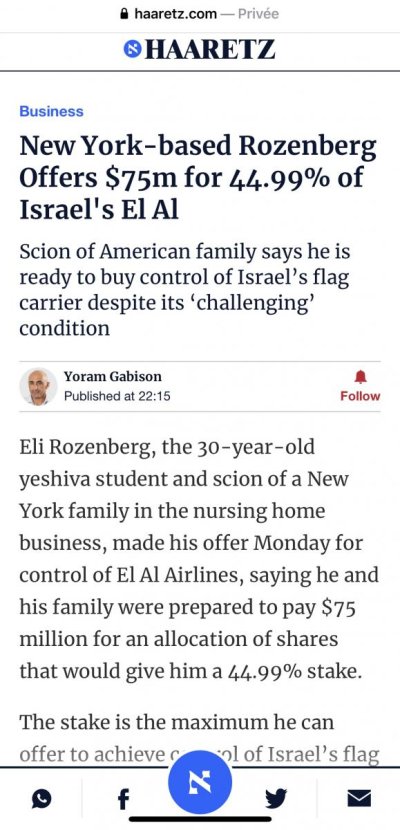There are two distinct types of airline travel-business and pleasure.
As to business, I remember many years ago, early in my professional career when video conferencing first came into significant use. The issues then were that setting up good facilities required space and was expensive. Also, habits are hard to break. Employees liked flying to face to face meetings. Now, fast forward to today. The technology is now cheap and everyone has the ability to video conference. The vast majority of business travel can be accomplished virtually. As companies face economic challenges, I see more and more online meetings likely and fewer in person. Things like conventions are very costly and once we get by a year or two without them, we'll realize there are other less expensive ways. I remember when we had major sales meetings twice a year. We'd gather with 50 sales persons and 30 corporate employees in a resort location. Figure travel at $1000 per person, lodging for 3-4 nights at $500 per person, food and beverage at $250 per person plus meeting rooms and other costs of $5000 total and soon you're around $145,000 plus add in the lost time just on getting to and from the meeting, two days of employees averaging $400-500 per day so another $1000 x 80 and now you're at $225,000 expense which can be reduced to $10,000 or so with virtual meetings. I see 90% of all business travel now unnecessary and anticipate 70% will be eliminated.
Then personal travel. We greatly prefer car but prefer boat over that. However, can't make a trip to Europe by car and can't take a weekend in NY by car. Air travel is a huge time saver. Most who can drive in the same time as flying requires, choose to drive. I see a couple of years in which the vast majority of personal air travel will be eliminated. Then I see a gradual resumption once the pandemic calms and the economy starts to recover. However, as pleasure flying is about convenience, I see the majority of it returning.
Let's assume for a second business travel settles back at 30% of prior numbers and personal travel at 90%. That is tremendously unworkable for airlines. Business travel pays the way. The entire pricing structure depends on it. Airlines will have to stop the discounting of pleasure travel, which will reduce it. Suddenly, leisure travelers will have to pay the full price of the seat.
The fact we've learned to conduct business virtually is devastating to airlines. It's not fear of sickness that long term puts them at the greatest peril, although perhaps it should be. It is the cost. If I can have a meeting from my office with the head buyer of a NY department store, then I don't have a reason to spend the money on a trip to NYC.
I haven't been on a plane since February. If I can go this long without, I can go far longer. My primary use of plane travel is to and from the boat when I fly home from a remote location.
There is one other business that quickly comes to my mind impacted by the business vs. personal situation described above. The US Postal Service depends on business mail and packages to be able to provide personal mail service. Home delivery has long dictated the rules and been the major uncovered cost. Business has paid the way. 3rd class, Parcel post, bulk mail and express mail pay the way. Home delivery is a huge money loser in the US. Letter mailing for $0.55 should be over $1. Saturday delivery should be eliminated except express mail. We could easily eliminate another day of home delivery, say Wednesday or do home delivery just on Monday, Wednesday and Friday. Congress sets the rules and does so based on home delivery but they're now balking at paying the bill. Will business mail return to it's prior levels? I don't know as there is a lot of competition, but likely return to 80% or so. Still that's a huge shortfall.

